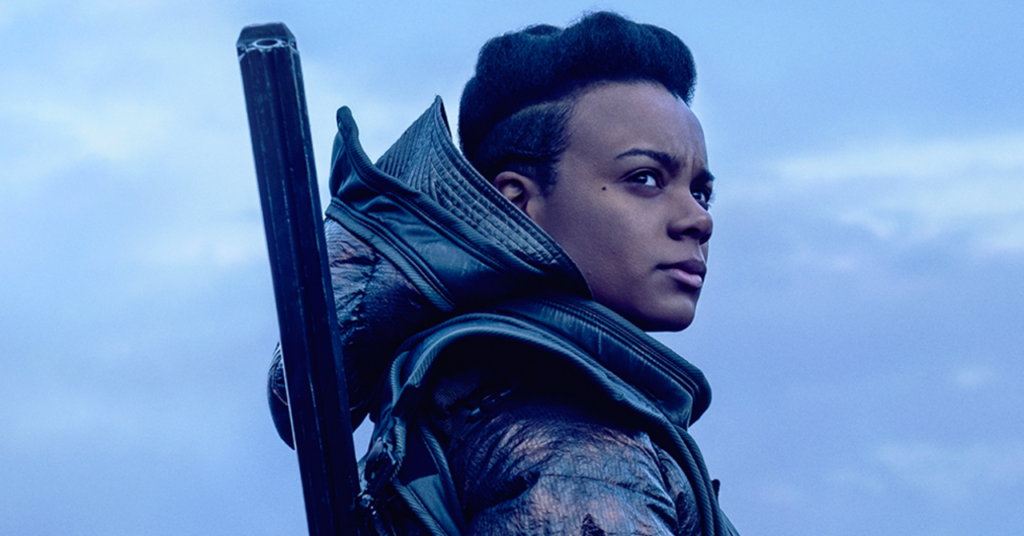2021 is truly the year of large-scale sci-fi/fantasy adaptations. We saw Dune in October, then Wheel of Time started in November, not to mention the second season of The Witcher that arrived in December. Foundation, based on the science fiction novels by Isaac Asimov, is every bit as epic as these other adaptations- in some cases, even more so. Written by David S. Goyer, it’s been significantly retooled to appeal to a wider audience. The result, however, is an ambitious but uneven first season that is probably extremely frustrating to those who expected a more faithful adaptation.
Gaal Dornick (Lou Lobdell) is a gifted mathematician who is invited to the Galactic Empire’s homeworld, Trantor, to study under Hari Seldon (Jared Harris), who invented the predictive subfield of psychohistory. A terrorist attack causes the current emperor, Day (Lee Pace) to exile Seldon and Gaal to the outer world of Terminus, where they will build the Foundation in order to accelerate the recovery of human civilization after the impending fall of the Empire. After an unexpected event leads to Gaal being jettisoned on an escape pod, we pick up thirty years later where Salvor Hardin (Leah Harvey) has to deal with the threat of Anacreons, whose planet was bombed by the Empire in retribution for the terrorist attack. The trinity of emperors, Dawn (Cassian Bilton), Day (Lee Pace), and Dusk (Terrence Martin), all cloned from a previous emperor, Cleon I, have to deal with internal and external threats that threaten the empire’s future.

Foundation has great production value, and even though the story barely resembles the source material, its scale is appropriately epic. However, some storytelling shortcuts are taken that cheapen the meaningfulness of the narrative. The story kicks off with what can only be called ‘space 9/11’ and a retaliatory attack that also gives birth to a hatred that only spawns more enemies down the line.
The Terminus plotline is mostly an action blockbuster story with some sci-fi elements thrown in, including a powerful spaceship that invokes the Death Star trope from Star Wars. Salvor Hardin, who was a savvy politician, is now an action hero who is also ‘special’ because she has visions, just as Gaal does, who we soon find out has precognitive powers. Finally, the main conflict of the Terminus plotline is resolved in a too convenient manner, with a speech that seemingly undoes decades, if not centuries, of bitter enmity.
Fortunately, the Empire storyline is easily the highlight of the season.
There are some predictable elements, such as a forbidden romance that goes awry, but this storyline does the most work in expanding the series’ worldbuilding. There’s an intriguing subplot about Day undertaking a religious trek to prove that he, too, has a soul despite being a clone. Lee Pace is the clear standout of this storyline, portraying smugness, coldness, and even empathy throughout the story. However, Martin and Bilton turn in great performances as well. Bilton, in particular, is great as the vulnerable Dawn. Like Day, his skin cannot literally be touched unless he allows it, and when he does open up, it doesn’t end well. Laura Birn is also great as Eto Demerzel, an immortal advisor to the Empire who is caught between her directives and her personal beliefs.
Goyer pitched Foundation as an eight-season series. Here’s to hoping that future seasons are more consistent and that important themes are explored without making too many concessions for a casual audience. As for following the source material, maybe the ship has already sailed for that, which is disappointing, as we aren’t likely to get a more faithful adaptation in a while. Still, if fans can be willing to look at Foundation as a very loose adaptation, they may just end up liking it more than they thought.






















